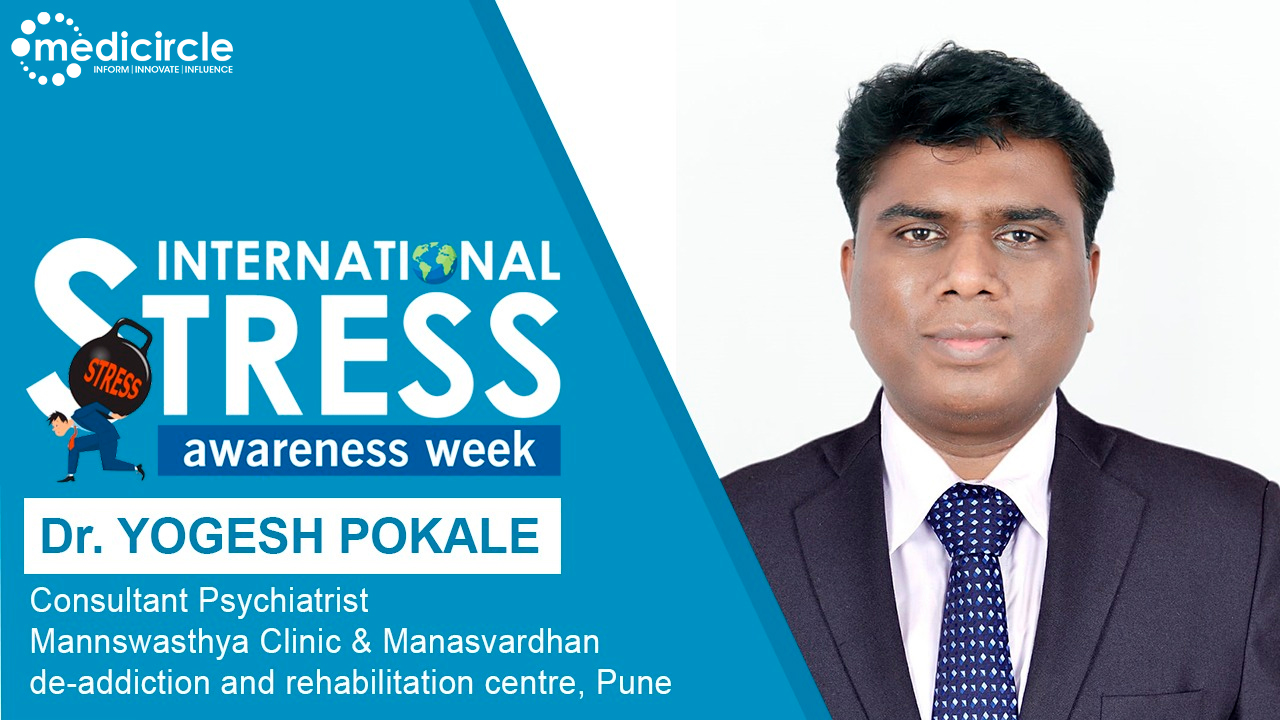The feeling of being overwhelmed or unable to cope with mental and emotional pressure is stress. Stress is our body’s response to pressure. Many different situations or life events can cause stress. Sometimes, this stress response can be useful: it can help us push through fear or pain. However, too much stress can cause negative effects. Long term, this can affect our physical and mental health.
As per the result of a large-scale survey conducted across India in 2019, young adults between the age of 20 and 29 years of both genders were the most stressed in the country. The major cause of high-level stress among young people are peer pressure, pressure to succeed in academics or work and irregular routines. 50% of Indian professionals have reported that an uncertain future is their topmost source of stress as was revealed in a recently concluded survey by The7thFold, a boutique HR and Wellbeing firm.
Every year, the world celebrates International Stress Awareness Week from 1st to 5th November. The day encourages people to sit back, unwind and embrace peace. Awareness about this become even more significant this year due to the tough times people across the world have gone through in the COVID-19 outbreak. We at Medicircle are conducting International Stress Awareness Week Series wherein we will be featuring experts in this field to understand and create more awareness about the effects of stress.
Dr Yogesh Pokale is a Consultant Psychiatrist at Mannswasthya Clinic (two branches at Moshi and Bhosari, Pune) & Manasvardhan de-addiction and rehabilitation centre, Pune. He is also a visiting psychiatrist at various Hospitals in PCMC Pune. He has been recently awarded Health Icon of Year PCMC by Ho. Health Minister Rajesh Tope sir and Lokmat Media Group. He has participated in various national and international CME n conferences.
What is Stress?
Dr Pokale begins, "Many of my patients come and tell me that they have stress. So we can say stress is a part of our daily vocabulary. Stress can be positive or negative. Positive stress or eustress can be helpful. It motivates us. If someone takes the workplace stress positively then they can achieve their work goals."
"If this stress is not helping you positivity then it is distress or negative stress. Generally, my patients are going through distress and they come for my aid. Stress can change our behaviour, the way we think. It is caused by a stressor."
How does stress affect us?
Dr Pokale explains, "When we are under stress, there are changes that happen in us. We have different thoughts. These thoughts produce different reactions. These thoughts can either motivate us to work or these thoughts can make us frustrated and unmotivated."
"It can make you feel low, take away your confidence and frustration can lead a person to depression. Or one can get an anxiety attack. Stress in the mind can affect the body physically. If our defence mechanisms are strong then this phase can go away quickly but if not then it stays for a long while."
"It can physically also affect us. We lose the motivation to eat. We experience weight loss. We are at risk of developing heart problems. Our diabetes and BP can shoot up. It can also aggravate chronic illnesses."
Is stress fatal?
Dr Pokale says, "Chronic stress can be fatal. For instance, Covid has given us a long period of stress. What started with a 21-day lockdown has not been continuing for years. It also kept on adding problems. Earlier it was only a health problem, then it became a health and financial problem. Now it is a health, financial and mental health problem."
"Chronic stress can result in depression. Depressive disorder, if untreated, is fatal. In this disorder, people don't find joy in things that previously were enjoyable to them. They start isolating themselves. They frequently get negative thoughts and get irritated at small things. They can even think of harming themselves and have suicidal thoughts."
"A ray of hope here is that with intervention all these problems can get resolved. Timely intervention by mental health professionals can help in these cases."
How to deal with stress?
Dr Pokale mentions, "Many times people don't talk about stress. They feel that others would judge them for being weak. Remove the mentality that stress is weakness. Take advice only from an expert. Taking advice from everyone is not useful."
"This is where the role of a psychologist or psychiatrist is important. They listen and understand your concerns. They assign solutions that they know are useful and practical. So when you feel low and unmotivated, seek help. Within a month or two you will feel better."
(Edited by Priyal Shah)

 Stress has became a part of our daily vocabulary. As such it is important to gain practical and useful advice to tackle stress. Read to find out about this practical advice.
Stress has became a part of our daily vocabulary. As such it is important to gain practical and useful advice to tackle stress. Read to find out about this practical advice.



















.jpeg)










